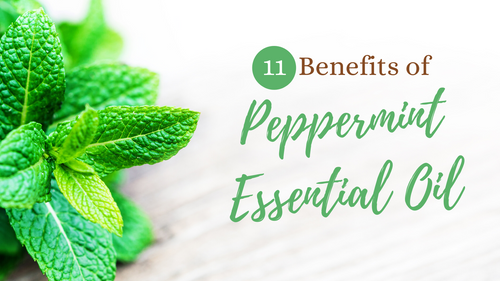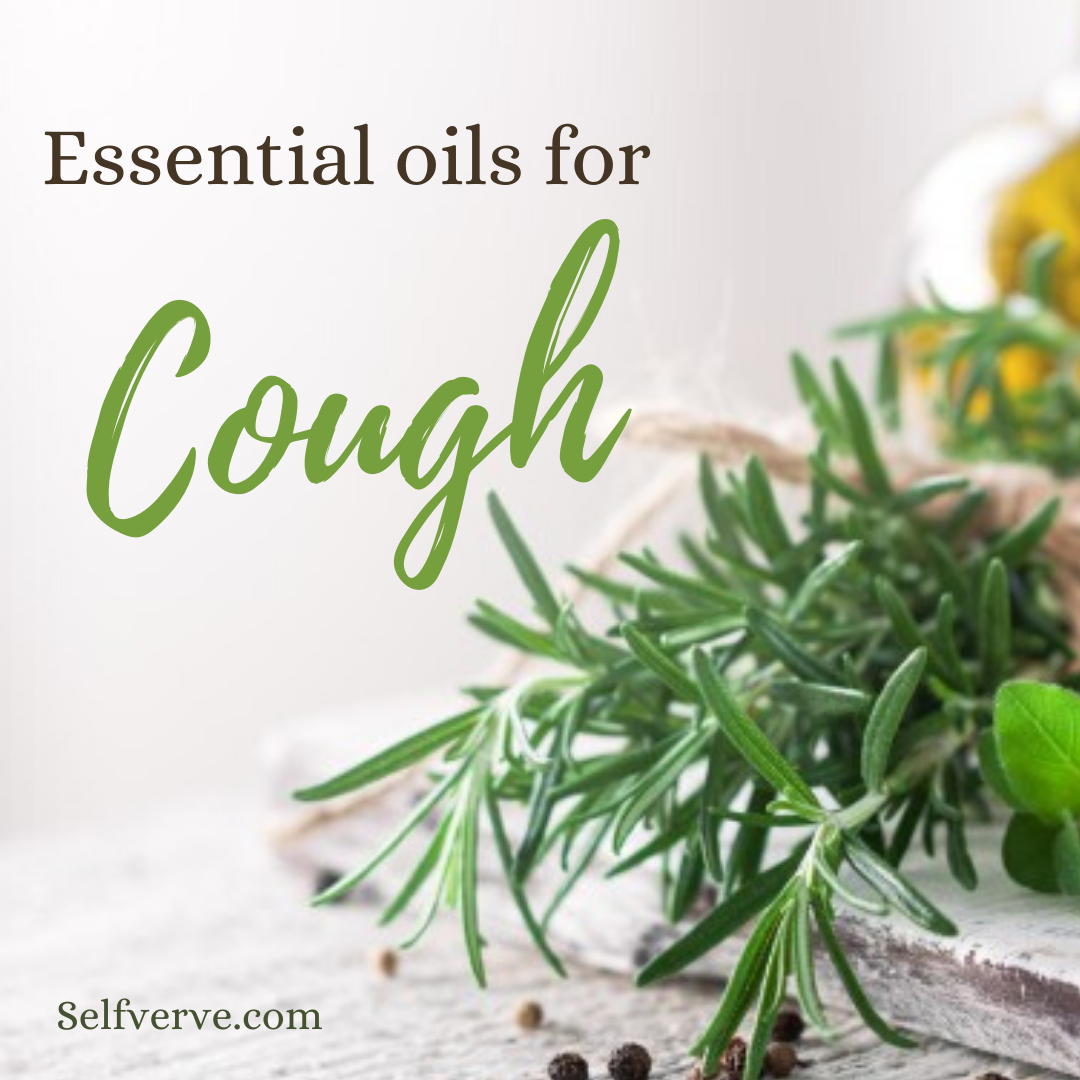
What are Essential Oils?
Essential oils are organic compounds extracted from the bark, flower, fruit, leaf, seed or root of a plant or tree and have several healing properties. The oils in the plants are made up of very small molecules that can penetrate your cells, and some can even penetrate the blood-brain barrier. These oils are highly concentrated and have a strong aroma and can be used in aromatherapy and their benefits range from mental to physical healing.
What Is Peppermint Essential Oil?
Peppermint essential oil is a very versatile oil that is extracted from the leaves of the peppermint plant. It is one of the oldest European herbs and has been used for hundreds of years for its antimicrobial and antiviral properties. It has and still is used aromatically, topically and internally to help soothe and address a number of ailments ranging from headaches, seasonal allergies, digestive problems, skin, hair and mental health.
Peppermint is a hybrid plant of water mint and spearmint. Menthol is the most active ingredient in peppermint, giving the leaves their energizing and invigorating effects. It is values for its soothing effects on the gastric lining of the colon and for its anti-nausea benefits. It can be used to relieve sore muscles, freshen breath and help fight infections. Here are few more reasons to give peppermint essential oil a try.
Benefits of Peppermint Essential Oil
Respiratory Relief
If you are feeling a bit under the weather or have congestion, try diffusing 5 drops of peppermint oil in your diffuser to help unclog your sinuses and relieve your scratchy throat. Peppermint oil acts as an expectorant and can help the body get rid of mucus, clear up congestion and open up our airways. It is one of the best essential oils to use for the flu, colds, sinusitis, bronchitis, cough, asthma and other respiratory conditions.
Seasonal Allergy Relief
Peppermint oil is great at relaxing muscles, even the ones in our nasal passages. It can help clear out pollen and other pollutants from our respiratory tract during allergy season. Because of its expectorant, invigorating and anti-inflammatory properties, peppermint oil makes for one of the best essential oils to use during allergy season and need some quick relief.
Reduce Nausea
If you are suffering from nausea for whatever reason- from motion sickness to surgery recovery- you can use peppermint oil to help relieve your nauseous feeling. You can simply inhale peppermint oil directly from the bottle, use an inhaler for nausea, rub 1-2 drops of oil behind your ears or add 1 drop of oil to a glass of distilled water.
Improve IBS Symptoms
If you suffer from IBS, or irritable bowl syndrome, then you know the symptoms of stomach cramping, abdominal pain, bloating, gas and diarrhea is no laughing matter and can seriously cripple you for quite sometime. By taking peppermint capsules, drinking peppermint tea or eating peppermint leaves, you can help naturally treat IBS. Peppermint oil reduces spasms in the colon, relaxes the muscles of the intestines and helps reduce gas and bloating.
Try taking 1-2 drops of peppermint oil internally with a glass of water or take peppermint capsules before meals. Also try applying 2-3 drops of the oil to your stomach.
Increase Energy and Improve Exercise Performance
Fitness and exercise can be a great way to relieve symptoms of stress and anxiety, but sometimes, it may be a little hard getting motivated to move and workout. By inhaling peppermint oil a few times, you can enhance your physical performance and boost your energy levels to give you that little push during weekly workouts.
If you plan on taking a long trip, or need a little more focused attention, peppermint oil can help with that as well by improving memory and alertness.
Relieve Joint and Muscle Pain
Peppermint oil can be used as a natural muscle relaxant and pain killer due to the cooling properties and antispasmodic properties found in this oil. It works great when trying to combat the pain of tension headaches. The next time you are feeling pain or tension, try applying 2-3 drops of peppermint essential oil to the area of concern 3 times a day. You can also add it to bath water with Epsom salt to give yourself a nice, relaxing, pain relieving bath.
Boost Skin Health
When applied topically, peppermint essential oil has toning, anti-inflammatory, softening and calming effects. In fact, it is often times used to prevent the growth of disease-causing microorganisms due to the antiseptic and antimicrobial properties. It has been proven that peppermint oil has the potential to treat skin diseases such as chicken pox, greasy skin, dermatitis, itchy skin, sunburn, ringworm, blackheads, inflammation, acne and scabies.
For a natural skin remedy, mix 2-3 drops of peppermint oil and 2-3 drops of lavender oil and apply the combination topically to the area of concern.
Sunburn Protection and Relief
Out in the sun too long and now you are suffering from dry sunburnt skin? Use peppermint essential oil to help hydrate and relieve pain from your sunburn. Before heading out in the sun for long periods of time, apply peppermint oil to your skin to help prevent sunburn in the first place.
To help heal skin from sunburn, and to help protect your skin, mix 2-3 drops of peppermint oil with half a teaspoon of coconut oil and apply the mixture directly to your skin.
Promote Hair Growth and Reduce Dandruff
Menthol is one of the main active ingredients in peppermint essential oil and it is a powerful antiseptic agent. It can help remove germs and build up in your hair and is used quite often in high quality hair care products for that reason. Peppermint oil can also naturally thicken and nourish damaged hair and can be a great natural alternative for thinning hair and can help stimulate the scalp and energize the brain.
To use peppermint oil as a natural treatment for your hair, you can add 2-3 drops to your shampoo and conditioner to promote hair growth and nourishment. Try making a homemade shampoo using rosemary and peppermint oil. You can make a hair spray by adding 5- 10 drops of oil to a spray bottle filled with water. If you want an easier alternative, massage 2-3 drops of peppermint oil to your scalp in the shower.
Headache Relief
You can help relieve tension headaches or migraines naturally by using peppermint essential oil. Tension headaches are caused when our muscles tense for long periods of time. Peppermint oil has the power to relax these tensed muscles and also improve circulation to help get blood flowing.
By simply applying 2-3 drops to your temples, forehead and back of your neck, you can start to relieve those annoying and painful headaches.
Oral Health and Fresher Breath
Peppermint oil has antibacterial properties that can help eliminate bacteria and fungus that can lead to bad breath, cavities or infection. These cavities and infections can lead to poor dental health and of course bad breath.
To boost your oral health, you can add a few drops to your store-bought toothpaste or add a few drops of peppermint oil under your tongue before drinking water. If you want to opt for a more natural route, you can make a homemade toothpaste with baking soda and peppermint oil as well as a homemade mouthwash.
Naturally Repel Bugs
Wanting to enjoy the great outdoors but don’t want to be bothered by pests? Or are the pests invading your home? Good news! You can repel these critters naturally with peppermint oil. Pests like roaches, mosquitos, spiders, ants and even mice don’t like the smell of peppermint oil. It may even be effective towards ticks and lice.
To repel insects, simply rub peppermint oil on your skin before going outdoors or create a natural bug spray using 5- 10 drops of peppermint oil to a spray bottle filled with water and spray in areas you want to repel.
Peppermint Essential Oil Precautions
If used the correct way, peppermint oil is considered safe to use. If you have sensitive skin, you may want to dilute the oil in a carrier oil like coconut oil or jojoba oil for topical use. If this is your first time using peppermint oil topically, perform a patch test before full body application.
Peppermint oil can cause irritations when applied to the face or chests of infants or small children, so it should be avoided in those areas. Not enough evidence is known if peppermint oil should be recommended for pregnant women or nursing women. It’s best to consult with your physician before use.
Keep in mind that some over-the-counter and prescription medications may adversely interact with peppermint oil. Be sure to consult with your doctor or physician before use. Enteric-coated peppermint oil supplements may cause rapid dissolving which can lead to heartburn, nausea and rapid absorption of some medications.
Peppermint oil can reduce absorption of iron when taken simultaneously. Allow at least 3 hours between taking the two to help avoid this.
What was you experience with peppermint essential oils? Let us know in the comments section below.
Related Posts
More on Essential Oils
Related Products
Sign Up for Our Newsletter
Be the first to receive our newest posts, sales and exclusive discounts.
Disclaimer
This content is for informational and educational purposes only. It is not intended to provide medical advice or to take the place of such advice or treatment from a personal physician. Neither Self Verve nor the publisher of this content takes responsibility for possible health consequences of any person or persons reading or following the information in this educational content. Be sure to contact your physician before trying any of the items stated in the above article.










